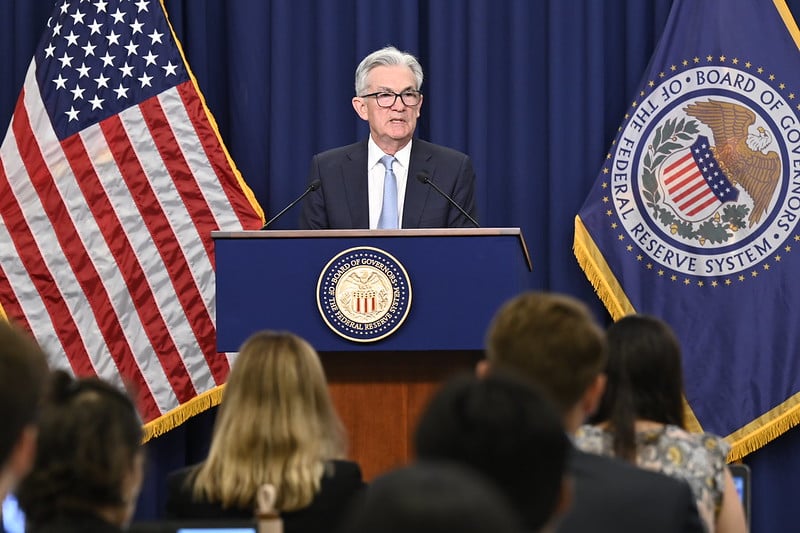Much can be said about the Federal Reserve’s FOMC meeting, and its decision to raise the benchmark interest rate, the largest since 1994.
Initially, what the Fed has done means that it continues to raise interest rates well above the neutral rate, as part of its historic attack on inflation in the hope of bringing it back to its 2 percent target.
The Fed’s decision to raise interest rates by 75 basis points, instead of previous expectations of 50 basis points, came after the unexpected increase in the annual US inflation rates, which reached 8.6 percent in May.
What can be explained by the statement released by the Federal Reserve and its new economic outlook after two days of meeting behind closed doors, means that his confidence in engineering a “safe landing” has diminished. Of course, it wouldn’t say it out loud.
But high “front-loading before the bend” rates, or proactive policy, are making it difficult to calibrate future monetary policy. And the reserve won’t know that it was too hard-core until it’s too late.
It is also noted that major changes were made to the statement at this week’s meeting. The committee added a line saying it was “strongly committed to bringing inflation back to its 2 percent target” and removed the previous wording that the FOMC “expects inflation to return to its 2 percent target and that the labor market remains strong.”
The new economic forecasts also charted a bumpy path before reaching safety. It sees a rise in the unemployment rate from 3.7 percent at the end of 2022 to 4.1 percent in 2024. Growth forecasts have been reduced to 1.7 percent in 2022 and 2023 from 2.8 percent and 2.2 percent in March forecasts. Fed officials still expect inflation to drop significantly in 2023.
But the broader question that arises today: Is the US economy heading towards a recession?
Trackers of monetary and economic developments see a recession looming on the horizon, and expect the sharp Federal Reserve hike to further stagnate the already sluggish economic growth.
CNBC quotes Michael Yoshikami of Destination Wealth Management that the US recession is a “certain fact” in the third quarter. He says the Fed’s nod before another 50-75 basis point hike in July shows that it will take whatever action is necessary to stop inflation,” which would push the economy into recession.
According to JPMorgan Chase & Co strategists, the Standard & Poor’s 500 Index now reflects an 85 percent probability of the US economy entering a recession, amid fears that the Federal Reserve will make a monetary policy error.
It is true that US stocks rose after the reserve announced its decision, but the positive mood of investors quickly evaporated after the reserve chairman, Jerome Powell, admitted that an economic downturn is possible, which diverted investors’ attention to the expected growth risks.
The United States is currently in a stagflationary period, with low growth and high inflation. The most difficult period will be with the continued rise of inflation, which is a reality. Expectations indicate that it is heading to record 9 percent. Concern is growing that it will record 10 percent or more in the coming months, which will push the US economy into a recession.
What’s the solution? That the Federal Reserve regain control of the inflation trajectory without sacrificing growth too much.
Unfortunately, however, the balance of risks now appears to be tilting in the negative direction.








